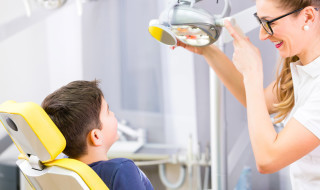
Children in special schools have fewer decayed teeth than children in mainstream schools but those affected have more severe decay.
This comes after Public Health England carried out the first oral health survey of children in special support schools, The Dental Public Health Epidemiology programme, which surveyed a high percentage of the 3,000 five-year-olds and nearly 7,000 12-year-olds in some of the UK’s 563 special support schools.
‘We are pleased that Dr Sandra White, director of Public Health England, has said that local authorities and NHS England should provide dental services with specially trained staff who can cater for the multiple complex needs of these children,’ Claire Stevens, spokesperson for the British Society of Paediatric Dentistry (BSPD), said.
‘Paediatric dentists have the skills and commitment – we just need enough of us and in the right locations.’
Dental decay
Of the five-year-olds, 22% had experienced dental decay and this compares to 28% of children in mainstream schools in the 2012 survey.
Among 12-year-olds, 29% had experience of decay compared to 33% of 12-year-old in mainstream schools identified in the 2008/9 survey.
Other key differences include:
- The percentage of children in special support schools who have had teeth extracted is 6% compared to 3% in mainstream schools
- Prevalence of extreme childhood caries – aggressive dental decay linked to bottle feeding – is 4.7% compared to 6.3% in mainstream schools
- 4% of five-year-olds attending special support schools had substantial amounts of visible plaque compare to 2% in mainstream school and among 12-year-olds, 20% had visible plaque compared to 10% in mainstream schools.
‘Our members provide a service for all children aged from birth to 16 and we are pleased to have this useful information about the oral health of this important group of vulnerable patients,’ Claire Stevens, consultant in paediatric dentistry in Manchester, said.
‘We also welcome the endorsement of our role from the Public Health England epidemiology team at a time when commissioning of services is front of mind.
‘We hope that local health authorities, which now have responsibility for commissioning services will bear the needs of this cohort of patients in mind and ensure they can benefit from access to specialist services.’


